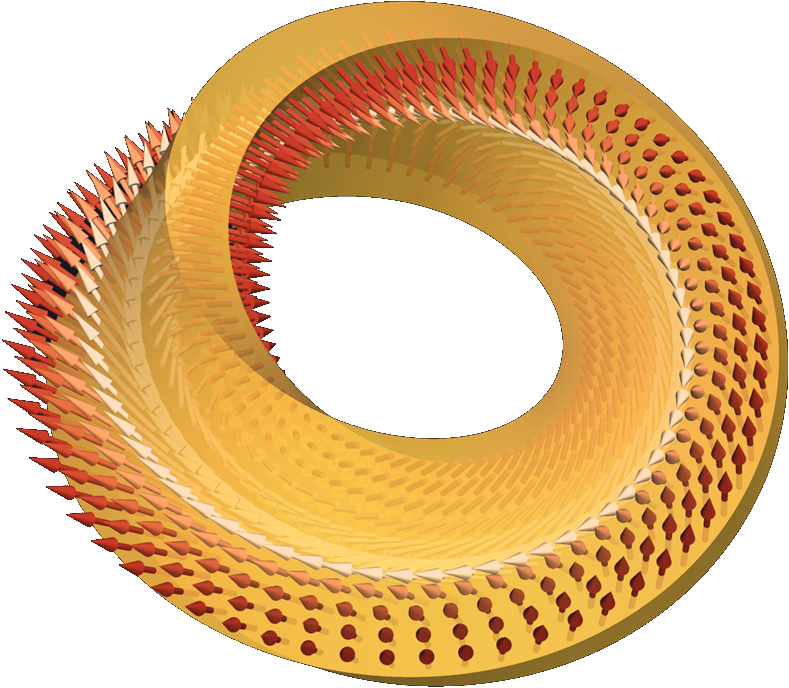Speaker
Description
We propose a minimal extension of the anisotropic Heisenberg model in order to describe flexible magnetic systems with coupled magnetic and mechanical subsystems. The interaction between the magnetic and mechanical subsystems is driven by uniaxial anisotropy with the easy-axis oriented along the tangential direction and by the Dzyaloshinskii-Moriya interaction (DMI).
Firstly, we study flexible ferromagnetic wires (rings) [1]. For elastic rings we show that magnetic subsystem can determine the equilibrium shape of the ferromagnet. Depending on the magnetic and elastic parameters and the size of the system one can obtain two different states: the onion state with the quasi-uniform magnetization is typical for small enough rings, while the vortex state with the magnetization oriented tangential to the wire is preferable for large systems.
We also show that the presence of DMI, results in a spontaneous deformation of a flexible magnetic ribbon. The final state is characterizing by the geometrical chirality whose sign is determined by the sign of the DMI constant. Depending on the mechanical, magnetic, and geometric parameters of the system one can obtain two different states: twisted-state with zero curvature of the central line is typical for small DMI constants and narrow ribbons, while the DNA-like state with nonzero curvature of central line is preferable for large DMI constants and wider ribbons. Using in-house developed simulator we build phase diagram of equilibrium states for flexible ribbon.
The theoretical results are verified by means of numerical simulations.
[1] Yu. Gaididei, K. Yershov, D. Sheka, V. Kravchuk, A. Saxena, PRB 99 014404, (2019).

